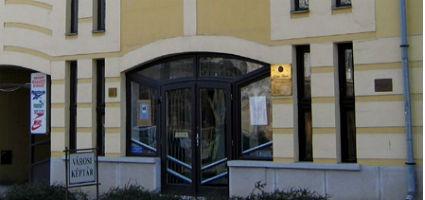2024. November 22. Friday
Town Gallery - Orosháza
 |
Address: 5900, Orosháza Thék Endre utca 1.
Phone number: (68) 472-350, (68) 412-523
E-mail: keptar@pmk.oroshaza.hu
Opening hours: Tue-Wed 9-14, Thu 10-17, Sat 9-13
|
Bolmányi Ferenc was a significant person of the art of the 20th century in Hungary. He was born in 1904 in Léva. He attended Grammar School in Békéscsaba and then he went to Budapest to study at the Collage of Fine Arts. Róna József thought him sculpturing and Magyar Mannheim painting. He did not finish his studies but went to Yugoslavia where he stayed until 1928 with brakes.
His career did not flourish right away, but his portraits became well known soon. Still, at the beginning of the 30's, he turned away from portraits that had provided him his living. The following stages of his career reflect deep humanity and worry about the fate of mankind. General problems occupied his thoughts; the questions of existence, the meaningless devastations and fear.
The first pictures of the cycle titled 'Light Town' were made in 1933. These pictures are abstractions of light and color from the city that compresses stress. There is no continuation of the cycle. Denser and deeper forms and colors can characterize his new artistic period.
Bolmányi gained attention with rightly chosen characters and he varied effects of colors of his nonfigurative works. The paintings with bird motif full of inner struggle were typical of his works for decades.
In the meantime nonfigurativity that the artist himself called 'cosmic period' was developing from the beginning of the 50's. It was full of fear and depression, the joy of life and distress never becomes concrete in figures but in wonderful colors.
The effect of Bolmányi's paintings is cathartic instead of decorative. The rhythm of color and patches began in the center and in waves or rays spread towards the edge of the pictures. Our strong feelings stops at arriving at larger patches.
The starting point of the works of Bolmányi Ferenc is his unique world of emotions, his inner fight in the midst of the events of life. He died in 1990. His works are shown in the Town Gallery from October 1996.
His career did not flourish right away, but his portraits became well known soon. Still, at the beginning of the 30's, he turned away from portraits that had provided him his living. The following stages of his career reflect deep humanity and worry about the fate of mankind. General problems occupied his thoughts; the questions of existence, the meaningless devastations and fear.
The first pictures of the cycle titled 'Light Town' were made in 1933. These pictures are abstractions of light and color from the city that compresses stress. There is no continuation of the cycle. Denser and deeper forms and colors can characterize his new artistic period.
Bolmányi gained attention with rightly chosen characters and he varied effects of colors of his nonfigurative works. The paintings with bird motif full of inner struggle were typical of his works for decades.
In the meantime nonfigurativity that the artist himself called 'cosmic period' was developing from the beginning of the 50's. It was full of fear and depression, the joy of life and distress never becomes concrete in figures but in wonderful colors.
The effect of Bolmányi's paintings is cathartic instead of decorative. The rhythm of color and patches began in the center and in waves or rays spread towards the edge of the pictures. Our strong feelings stops at arriving at larger patches.
The starting point of the works of Bolmányi Ferenc is his unique world of emotions, his inner fight in the midst of the events of life. He died in 1990. His works are shown in the Town Gallery from October 1996.